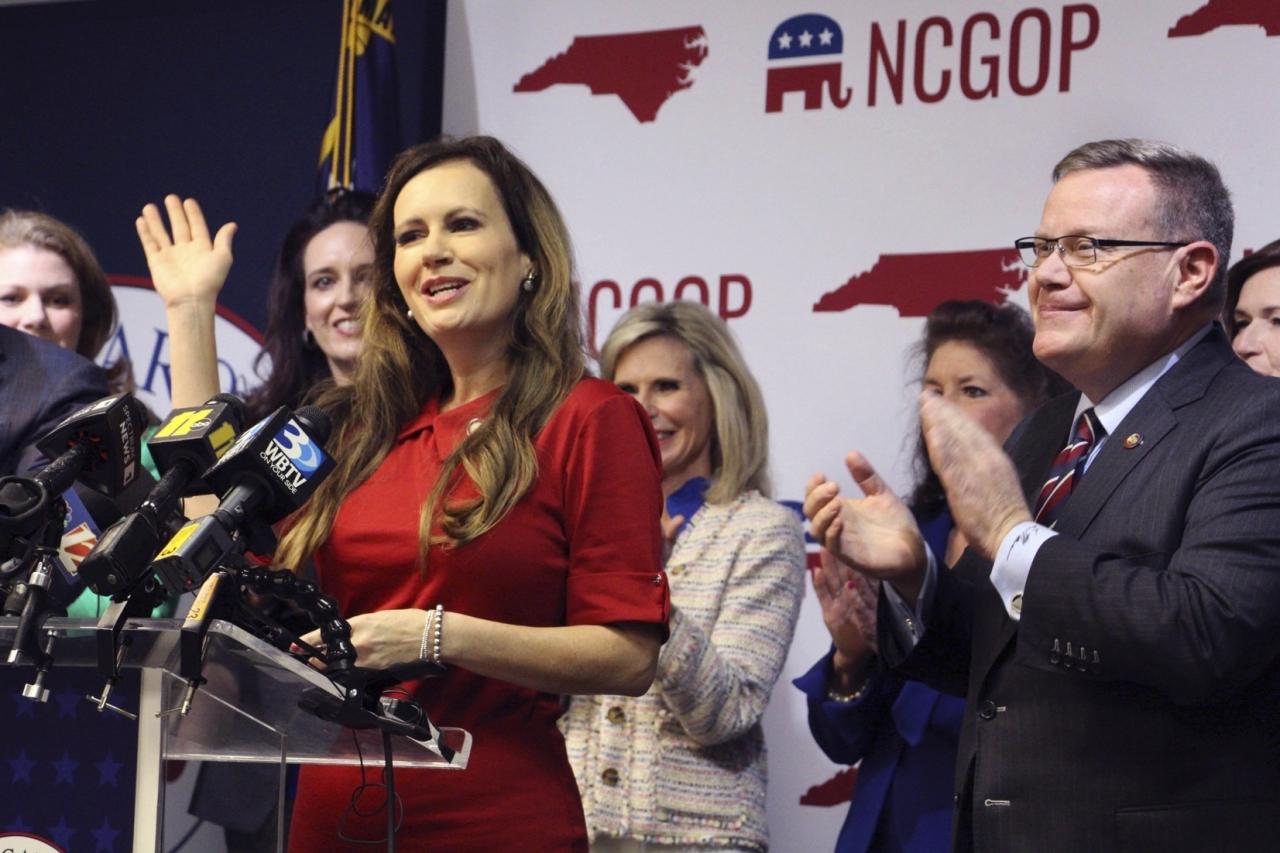For Elliott Pritt, defecting to the GOP was an obvious choice.
The West Virginia lawmaker comes from an area of the state that used to be solidly blue — voters sent a Democrat to his seat in the state House for 24 straight years. But attitudes in his district have recently swung towards Republicans, credited largely to the decline of coal and anger over environmental restrictions.
So Pritt abandoned the Democratic Party and registered as a Republican in April. He was motivated by a desire to more effectively represent his constituents and take advantage of the opportunities enjoyed by Republicans who wield supermajority control in the state Legislature.
“Even if I were to run again and win, I would look at another term of never getting another bill passed, never getting anything done,” said Pritt, a social studies teacher. “For the time I’m going to be there I’m not going to sit there and be a lame duck and not get anything.”
Pritt is one of the 10 state lawmakers nationwide who have switched parties in 2023. That includes six who jumped from one of the major parties to the other. In 2022, by contrast, just two state lawmakers changed affiliation between the Democrats and Republicans.
The uptick in party transitions this year speaks to the growing polarization and party feuding inside state capitals.
“In recent decades, the red states have become redder, the blue states bluer and the number of swing states has fallen dramatically,” said William Galston, senior fellow of governance studies at the Brookings Institute. “When this happens, the minority parties lose power in the legislature and the advantages of being in the majority increase.”
Five of this year’s party switchers involved House Democrats becoming Republicans, reflective of the fact that in recent history the GOP has seen more converts. Since 1994, 173 state lawmakers have switched parties: 83 of those were Democrats who became Republicans, while just 23 Republicans became Democrats.
West Virginia Democratic Party Chair Mike Pushkin dismissed the trend of Democrats turning into Republicans as politicians furthering their own careers.
“It’s not so much about ideology than it is about opportunism,” Pushkin said. “It’s difficult to get elected as a Democrat in a deep red state. But it’s not about changing football jerseys — a lot of us stand for something.”
Pritt is one of two Democrats in West Virginia who switched, and it’s possible that in coming weeks there could be a third: Political insiders speculate that former House Minority Leader Doug Skaff, who resigned his leadership position last week, could shrink the Democratic Party’s ranks even further from its current tally of 11 out of 100 seats. There’s long been speculation that Skaff, a moderate Democrat, will join Republicans, who he votes with often.
When asked in an interview if he was going to swap parties, Skaff was vague about whether he planned to declare himself a Republican. But he said he’s faced pressure from Republicans to join them.
“In states like ours it’s becoming harder and harder to be a conservative Democrat,” Skaff said. “It’s really frustrating. You work really hard to do what’s right and at the end of the day you’re in the superminority.”
West Virginia Republican Party Chair Elgine McArdle said they’re excited about the increase in Republicans, which is happening with both elected officials and registered voters. Republicans in West Virginia are approaching an unprecedented 100,000 registered voter advantage over Democrats, she said.
“Of course the West Virginia party is growing by the day because I think more and more voters feel left behind by the Democratic Party,” she said. “They’re developing an affinity for our common sense, conservative platform.”
Yet McArdle encouraged voters to be cautious about newly named Republicans and examine their reasons for switching.
“Is it because they believe in our conservative principles, or do they want to remain relevant in a state that a Democrat will probably not win?”
Pritt and Jeffries’ switches had little consequence for the balance of power in the West Virginia state legislature, given Republicans’ mile-wide margins. But in other states that saw allegiance flips, it had huge bearing on what legislation passed.
Most notably, North Carolina Rep. Tricia Cotham’s move to the GOP handed Republicans supermajority control, allowing them to enact conservative goals like a 12-week ban on most abortions. Republicans’ dominance of the state legislature allowed them to bypass Democratic Gov. Roy Cooper, who vetoed top Republican priorities.
A long time Democrat from a blue area near Charlotte, Cotham supported other conservative measures after her swap, like a ban on gender-affirming care for minors and expanded eligibility for private school vouchers.
Cotham, who returned to the statehouse after working as a lobbyist for several years, said at a press conference announcing her decision that the Democratic Party has “become unrecognizable” and prioritizes the political process over continuing its reputation as a “big tent” party. She said she felt shunned by members of the Democratic caucus.
Cotham’s change of party enraged Democrats in her district and throughout the state, likely setting herself up for a bitter primary challenge. Democratic leaders called for Cotham to resign. A petition seeking her resignation launched by a Democratic nonprofit in June says it has collected over 7,000 signatures.
“This is deceit of the highest order,” said North Carolina Party Chair Anderson Clayton and Mecklenburg County Democratic Party Chair Jane Whitley in a joint statement. “Rep. Cotham’s decision is a betrayal to the people of HD-112 with repercussions not only for the people of her district, but for the entire state of North Carolina.”
In Louisiana, Rep. Francis Thompson, who served as a Democrat for nearly 50 years, became a Republican in March. That gave Republicans supermajority control in another chamber and the ability to override vetoes from Democratic Gov. John Bel Edwards.
Thompson insisted in a statement at the time that “nothing has changed” because of his decision, noting his “conservative record” that “speaks for itself.” Thompson joined Republicans last year to override Edwards’ veto of a congressional redistricting bill — the first time in over three decades such a move occurred.
A few weeks after Thompson’s announcement, a second Democratic lawmaker in Louisiana — Rep. Jeremy LaCombe — swapped parties, delivering the latest punch to the Democratic Party in the South.
Then there’s Georgia Rep. Mesha Mainor, another Democrat who became a registered Republican last month. Mainor’s switch to the GOP makes her the only Black lawmaker among Republican legislators in the state.
Her move was partly motivated by Republicans’ support of her efforts to create a workforce development authority in Black communities and support HBCUs. Leading up to the switch, Mainor voted with Republicans on school vouchers and greater prosecutorial oversight. Democrats, meanwhile, “tried to tear down” her work to help Black communities, Mainor said in an interview. She criticized Democrats in the South for not delivering electoral results or looking out for the interests of people of color.
Changing parties is a complicated issue, said Mainor, who expressed confidence about her ability to be reelected, even though she represents a heavily Democratic district in Atlanta with a large Black population.
“It’s heavily related to one’s sense of self-respect, experiences and professionalism,” she said. “If an elected official cares about policy, the party is irrelevant. The policy legislator wants to be in the party they see trying to push the policies that favorably impact the people they represent.”
In some cases, lawmakers say they’ve reaped immediate dividends by changing political affiliations.
In the three months since Pritt traded in his Democratic Party credentials, he’s noticed one major change: his calls to state agencies are returned, something that he said didn’t happen when he ran with a “D” next to his name on the ballot.
 RSS Feed
RSS Feed















 August 9th, 2023
August 9th, 2023  Awake Goy
Awake Goy 


 Posted in
Posted in  Tags:
Tags: 













